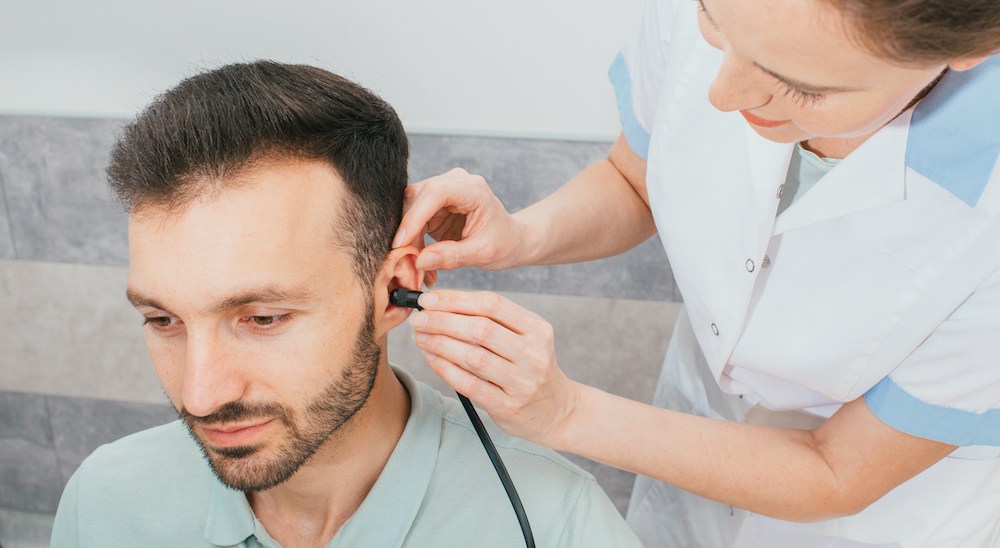Understanding Your Hearing Test Chart and Results
You sit down with your audiologist after your hearing test, and they slide

By: admin | September 25, 2024
When experiencing and managing hearing loss, you’ll often hear the term audiologist. These are professionals with extensive training who play a crucial role in diagnosing and treating hearing loss. Their work goes beyond just prescribing devices to enhance your hearing; they also provide comprehensive care that includes understanding your lifestyle, advising on communication strategies and offering solutions specifically designed for you. They play a key role in helping individuals regain their sense of sound, enhancing life quality, rebuilding connections with loved ones and restoring confidence in social situations.
These professionals are there to identify your level of hearing loss and guide you through the steps towards improved auditory health. Your audiologist is responsible for several key tasks. They start by conducting a thorough evaluation of your hearing ability using advanced diagnostic tools. Then, they provide personalized advice based on your specific needs and lifestyle preferences. Finally, they assist in selecting and fitting suitable hearing aids or other assistive devices. Their expertise goes beyond these technical aspects; they also offer emotional support and counseling to help you adjust to changes in your auditory capabilities. This comprehensive approach ensures that you receive the best possible care for your unique situation.
Your audiologist understands that each person’s hearing loss is unique, requiring a tailored approach for effective treatment. They conduct a detailed assessment of your hearing, considering factors such as the severity of your loss, your lifestyle needs and even your personal preferences. This ensures that the solutions provided are not just effective but also comfortable and easy for you to use in your daily life.
Ever wondered what exactly happens during a hearing test? An audiologist conducts various hearing tests to assess your hearing abilities and determine the type and severity of any hearing loss. One common test is the pure-tone audiometry, where you listen to different tones through headphones and indicate when you hear them. Another test, speech audiometry, evaluates how well you understand spoken words at different volumes.
Additionally, tympanometry measures how well your eardrum and middle ear are functioning by changing air pressure in the ear canal. These tests help the audiologist create a comprehensive picture of your hearing health and determine the most appropriate treatment or intervention, such as hearing aids or assistive devices. These tests are painless and non-invasive, providing valuable insights into the nature and extent of your hearing loss.
Understanding the results of these tests is equally important. Your audiologist will explain the findings in a clear and easy-to-understand manner. They’ll discuss what the results mean for you and how they inform the next steps in your treatment plan. This open communication ensures you’re fully informed about your auditory health and involved in decisions about your care. A survey by the National Council on Aging found that people who wear hearing aids are more likely to participate in social activities, highlighting the importance of personalized assessments in improving quality of life.
These personalized plans are crafted by your audiologist, taking into account your unique lifestyle and specific needs. Hearing aids are commonly prescribed to individuals with hearing loss to amplify sounds and improve communication. Audiologists work closely with you to select the most suitable hearing aid style, features and technology level based on your lifestyle and hearing requirements. There are three main styles of hearing aids, these include behind the ear (BTE), in the ear (ITE) and in the canal (ITC). Your audiologist will find the right hearing aid for the severity of your hearing loss.
In addition to hearing aids, audiologists may suggest assistive listening devices, such as captioned telephones or frequency modulated (FM) systems, to enhance communication in specific situations. These devices can complement hearing aids and improve your ability to hear in challenging environments like noisy restaurants or classrooms. In addition to assistive listening devices, there are also smartphone apps and other technological advancements that can improve your listening experience. It’s always a good idea to discuss these options with your audiologist who can provide advice tailored specifically to your needs and lifestyle preferences. Managing hearing loss is not just about treating it but also about enhancing your overall quality of life!
These professionals provide communication strategies to help you effectively communicate with others despite hearing loss. These strategies may include techniques for better speech reading, managing conversations and advocating for your hearing needs in various settings.
By offering personalized treatment plans that may include hearing aids, assistive listening devices and communication strategies. Your audiologist will create a treatment plan that fits seamlessly into your daily routine. Whether you’re an active outdoors person, a music lover or someone who enjoys quiet evenings at home, the right treatment can make all the difference. The goal is to provide you with solutions that work for you and enhance your ability to communicate effectively in various situations.
Another form of personalized treatment your audiologist can provide is counseling strategies. These include:
These counseling strategies not only help you communicate more effectively but also boost your confidence in social interactions. Managing hearing loss is a holistic process that involves more than just technical solutions; it’s about improving your overall quality of life!
Audiologists offer ongoing support to individuals dealing with hearing loss by providing comprehensive care and assistance throughout their journey. They track your hearing health through regular check-ups and assessments to monitor any changes in your hearing abilities over time. If adjustments to your hearing aids or assistive devices are needed, audiologists are there to make necessary changes to ensure optimal performance and comfort.
An audiologist offers cleaning and maintenance services to help you keep your hearing aids in good working condition. They can provide guidance on proper cleaning techniques and recommend suitable cleaning products to prevent damage and prolong the lifespan of your devices. Importantly, appointments with these professionals are opportunities for individuals to voice concerns or ask questions about their hearing health. They will listen attentively to your needs, address any worries or uncertainties you may have and provide personalized advice and support to help you manage your hearing loss effectively.
While your audiologist can provide comprehensive care, there are some lifestyle modifications you can make to better your hearing. Firstly, adopt a proactive approach towards protecting your ears from excessive noise, one of the most common causes of hearing loss. This could mean using earplugs when exposed to loud sounds or limiting the volume on personal audio devices. Secondly, maintain a healthy lifestyle as certain conditions like diabetes or high blood pressure can impact your hearing health. Regular exercise and a balanced diet can go a long way in preserving your auditory abilities. Lastly, don’t underestimate the power of regular check-ups with a professional. These visits allow for early detection and timely intervention, enhancing the effectiveness of treatment strategies. By taking these steps, you are actively contributing to better hearing health and improved quality of life.
Untreated hearing loss can have an impact on your mental health. Studies have shown that untreated hearing loss can lead to feelings of isolation, frustration and even depression. Your audiologist understands this connection and is equipped to provide support that goes beyond just treating the physical aspect of hearing loss.
They can provide counseling and recommend support groups where you can connect with others who are experiencing similar challenges. They can also work with you to develop coping strategies that can help improve your mental well-being. Treating hearing loss is not just about restoring sound, it’s about improving your overall quality of life.
Not only can your audiologist provide support, but your family can too. Their understanding and support can make a significant difference in how you manage your hearing loss. A professional can provide guidance on how loved ones can effectively communicate with you and support you in social situations. They can also help your family understand more about hearing loss, so they can better empathize with your experience. You’re not alone in this journey. With the right support from both an audiologist and loved ones, you can effectively manage your hearing loss and enjoy a high quality of life.
It’s clear that an audiologist plays a significant part in your auditory health. They provide comprehensive care, from conducting detailed assessments and crafting personalized treatment plans to offering counseling strategies and continued support. If you’re experiencing changes in your hearing or simply want to learn more about maintaining good auditory health, don’t hesitate to reach out for professional help. At SLENT Hearing & Balance Center, our team of dedicated audiologists are ready to assist you with all your hearing needs. Call us today at one of our locations below.
Your path towards improved auditory health starts with a simple phone call. Reach out today and take the first step towards better communication, enhanced connections with loved ones and an overall improved quality of life!

You sit down with your audiologist after your hearing test, and they slide
By: admin | January 19, 2026

Hearing loss is more than just a change in how you hear sounds. It often
By: admin | November 18, 2025

Most people don’t think much about their hearing health until they
By: admin | August 21, 2025
